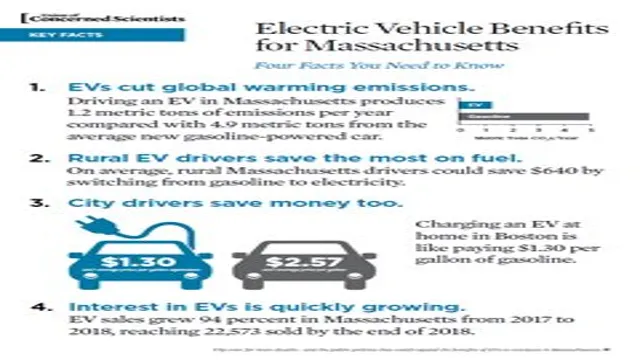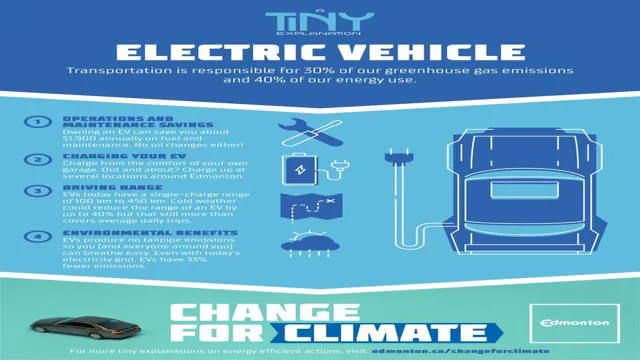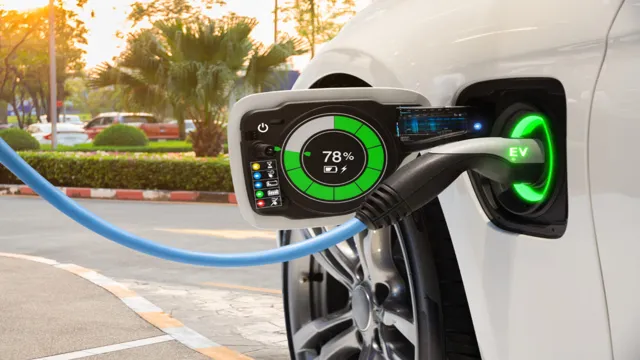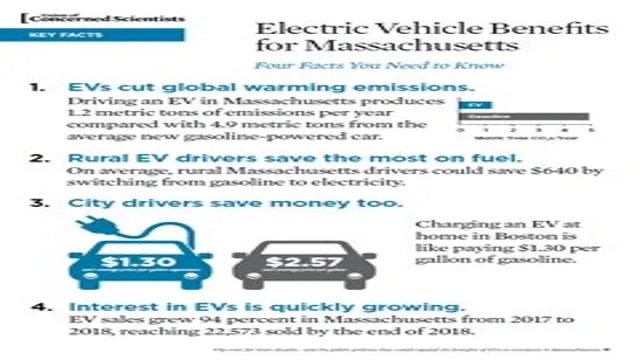Unveiling the Truth: The Tax Implications of Electric Cars and Benefit in Kind Benefits
Are you considering purchasing an electric car? With their eco-friendly reputation and lowered operating costs, electric cars have become increasingly popular in recent years. However, there is one factor that may dissuade some potential buyers – the Benefit in Kind tax. This tax is levied on company cars and is based on their value, fuel type and CO2 emissions.
But how does this tax work for electric cars? In this article, we’ll take a closer look at Benefit in Kind on electric cars and explain how the tax affects buyers and their employers. Let’s dive in!
What is Benefit in Kind?
If you’re considering purchasing an electric car, you may be wondering if there’s a benefit in kind on these vehicles. In short, the answer is yes! Benefit in kind (BIK) is a term used to describe any non-cash benefit that an employee or director receives from their employer. This can include a company car, private healthcare, and even gym memberships.
In the case of electric cars, there is a significantly lower BIK tax rate compared to traditional internal combustion engine (ICE) vehicles. This is because electric cars produce zero emissions, making them better for the environment and therefore, incentivizing their use. As of April 2021, the BIK tax rate for electric cars stands at just 1% compared to ICE vehicles which can be as high as 37%.
So, if you’re in the market for a new car and want to reduce your BIK tax liability, an electric car is definitely worth considering.
Definition and Explanation
Benefit in Kind Have you ever received a non-cash benefit from your employer instead of a salary or wage? If so, that’s called a Benefit in Kind. It’s an additional form of compensation that your employer provides, which could include things like a company car, gym membership, or even private health care. While it’s not actual money in your pocket, these benefits can still have a financial value that must be declared to HM Revenue & Customs (HMRC).
The value of the benefit is usually calculated based on its market value, and the employee is then required to pay tax on that amount. It’s important to note that Benefit in Kind can be a complex area of taxation, so it may be worth seeking professional advice if you’re unsure about whether or not you need to declare any non-cash benefits you’ve received.

Calculation of BiK
Benefit in Kind, BiK Benefit in Kind (BiK) refers to any non-cash benefit or perk that an employer provides to their employee in addition to their salary. Examples of BiK include company cars, private medical insurance, and employee discounts. BiK is taxable and must be accounted for when calculating an employee’s overall income.
The calculation of BiK is based on the cash equivalent value of the benefit provided, which is determined by HM Revenue and Customs. The value of the BiK is then added to the employee’s salary and taxed accordingly. It’s important for both employers and employees to understand BiK and its consequences for tax purposes.
Employers must report BiK on their annual P11D form, while employees must declare it on their tax return. Overall, BiK can be beneficial for employees, but it’s important to understand the tax implications and ensure compliance with HM Revenue and Customs guidelines.
Electric Cars and BiK
If you’re wondering whether there’s a Benefit-in-Kind (BiK) on electric cars, the answer is yes! In fact, electric vehicles (EVs) have some of the lowest BiK rates available for company car drivers. The reason for this is that EVs have zero emissions, making them an attractive option for those who want to reduce their carbon footprint. As of 2020, the BiK rate for EVs is 0%, meaning that company car drivers pay no tax on them.
This is a significant advantage over petrol and diesel cars, which typically have much higher BiK rates. The government’s aim is to encourage more people to switch to electric cars, and by offering attractive incentives like the BiK rate, they hope to achieve this goal. So, if you’re in the market for a company car, it’s worth considering an EV to take advantage of the low BiK rates available.
Advantages of Electric Cars in BiK
Electric cars have become increasingly popular due to the many advantages they offer, one of which includes their reduced BiK (Benefit-in-Kind) tax rates. BiK tax is paid by company car drivers on top of their salary, and it is based on the type of car they drive and its CO2 emissions levels. Electric cars are seen as a viable low-carbon option in comparison to traditional petrol or diesel cars, and they also benefit from lower BiK tax rates.
This is because they have zero or very low CO2 emissions, which are the main contributors to high BiK tax rates. Choosing an electric car for your company car can, therefore, result in significant savings in terms of taxation. With governments and businesses alike pushing for a greener, more sustainable future, investing in electric cars not only has economic benefits but also environmental ones.
So, if you’re in the market for a new company car, it might be worth considering an electric option to enjoy these benefits.
Disadvantages of Electric Cars in BiK
“Electric Cars and BiK” Electric cars might seem like the perfect solution to reduce CO2 emissions and save money, but there are some drawbacks to owning one when it comes to BiK or benefit in kind tax. The BiK tax is a tax on employee benefits, and it’s calculated based on the value of the car and its emissions. Unfortunately, electric cars tend to have a higher BiK tax than traditional petrol or diesel cars due to the high purchase price of the car, which offsets the savings on fuel costs and lower CO2 emissions.
Additionally, the limited range of electric cars may not be suitable for those with long commutes or who frequently travel long distances, making it difficult to justify the higher BiK tax. While electric cars are a positive step in reducing our carbon footprint, they may not always be the most cost-effective option for those facing high BiK tax rates.
Examples of BiK on Electric Cars
BiK on electric cars is becoming a more popular topic as these cars become more prevalent on the roads. BiK, or Benefit-in-Kind, is a tax that employees pay on perks they receive from their employer, such as a company car. With electric cars, BiK rates are typically lower due to their low emissions, making them an attractive option for those looking to save money on their taxes.
For example, in the UK, the BiK rate for electric cars is 1% for the tax year 2021-22, compared to 12% for petrol and diesel cars. This can mean significant savings for employees who choose to drive an electric company car. Furthermore, electric cars can also be cheaper to run overall, due to their lower charging costs and reduced maintenance expenses.
As the technology continues to improve, it is likely that more and more employers will offer electric cars as a company car option, making BiK rates on these vehicles an important consideration.
Conclusion
In conclusion, the question of whether there is a benefit in kind on electric cars may seem like a black-and-white issue, but it is actually a complex and evolving topic. While electric cars do offer some clear advantages, such as lower emissions and reduced fuel costs, there are also challenges to consider, including the high initial cost and limited range. Ultimately, the benefits of choosing an electric car depend on a variety of factors, including your lifestyle, budget, and environmental values.
So, while the answer may not be simple, one thing is clear: if you’re looking for a vehicle that is both kind to the planet and your wallet, an electric car is definitely worth considering.
Why Electric Cars are a Good Option for BiK Users
BiK, electric cars, good option More and more business owners are switching to electric cars as a good option for benefit-in-kind (BiK) users. And for good reason! Electric cars are more eco-friendly, energy-efficient, and cost-effective than traditional petrol and diesel-powered vehicles. In addition, with the increasing popularity of electric cars, they are becoming more affordable and easier to find on the market.
Not only do they offer lower running costs, but they also have lower BiK rates making them an ideal option for business owners. Making the switch to electric cars is not only beneficial for the environment but can also help businesses save money on fuel costs and tax benefits. With the continued growth of electric vehicles, BiK users can confidently make the switch knowing that they are making a positive impact while also saving money in the long run.
Future of BiK on Electric Cars
The future of BiK on electric cars is a topic that has raised lots of debates recently. To begin with, BiK (benefit in kind) is a tax on an employee’s non-cash benefits, including company cars. The BiK rate is set relative to the car’s CO2 emissions, and this has incentivized the use of electric cars, which have significantly lower emissions than traditional petrol or diesel cars.
However, as more and more companies switch to electric cars, there have been concerns about how the BiK system will be adapted to fit these newer vehicles. Some have argued that the current BiK system should be scrapped altogether and replaced with something more sustainable. Others suggest simply amending the BiK rates to reflect the lower emissions of electric cars.
Regardless of the solution, it is clear that changes in the BiK system will be necessary as more companies transition to electric cars, and this will likely spark further debate in the coming years.
FAQs
What is a benefit in kind (BIK) tax?
Benefit in kind (BIK) tax is a tax paid on perks or benefits that employees receive from their company, including company cars.
Is there a benefit in kind (BIK) on electric cars?
Yes, there is a benefit in kind (BIK) tax on electric cars in the UK.
How is the benefit in kind (BIK) tax calculated on electric cars?
The benefit in kind (BIK) tax on electric cars is calculated based on the car’s list price, CO2 emissions, and battery range. Electric cars with a longer battery range and lower CO2 emissions typically have lower BIK tax rates.
Are there any exemptions for benefit in kind (BIK) tax on electric cars?
Yes, electric cars with zero CO2 emissions, such as those powered solely by electricity, are exempt from paying any benefit in kind (BIK) tax in the UK until April 2021. After that, a reduced rate will apply.





